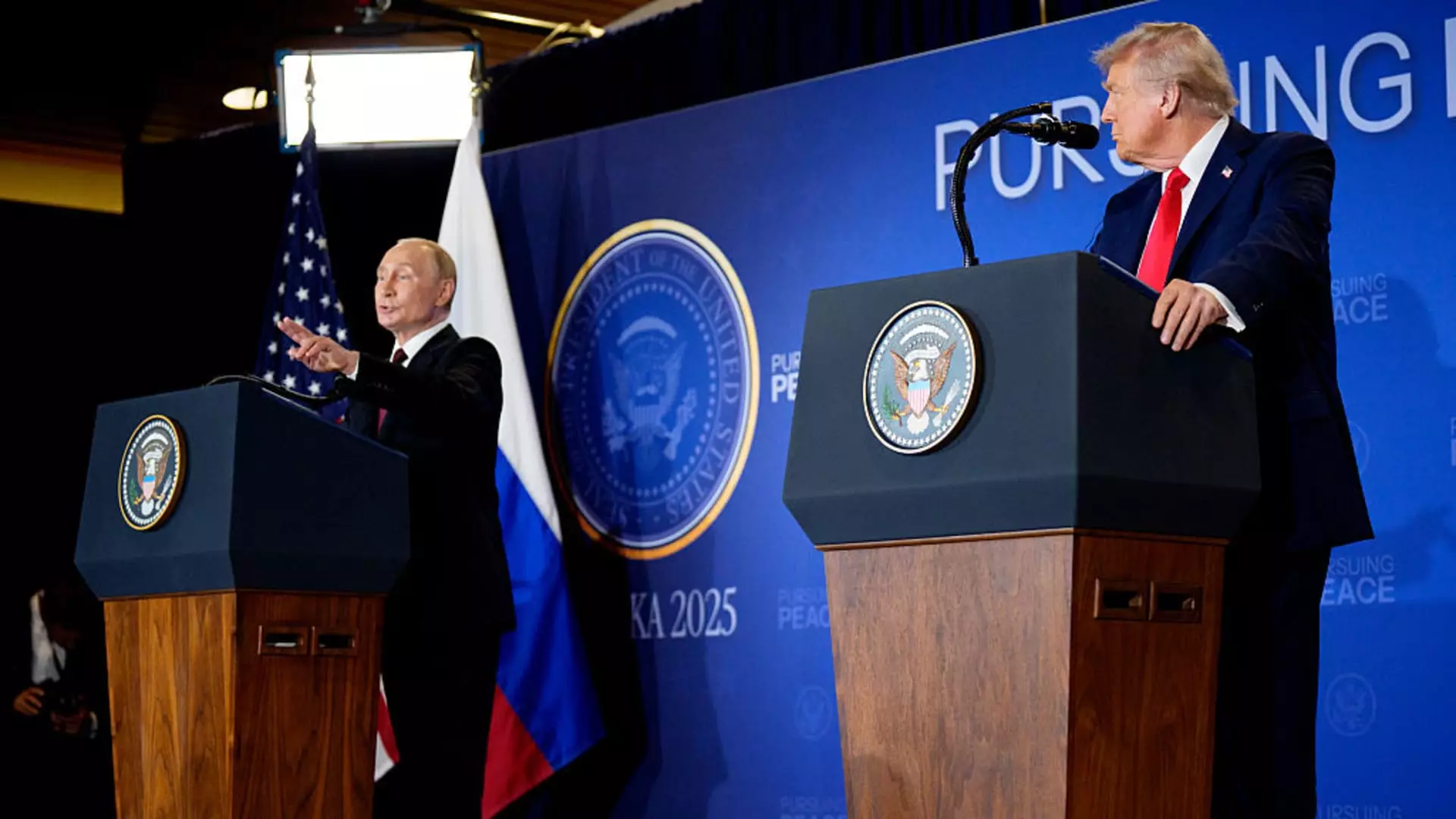In the aftermath of a summit that promised potential breakthroughs yet yielded little tangible progress, it becomes painfully clear that global diplomacy is often a façade masking the underlying power struggles that define our era. The recent meeting between President Donald Trump and Vladimir Putin, held in the symbolic setting of Alaska—a land once belonging to Russia—was heralded with cautious optimism but ultimately revealed the chasm that exists beneath surface-level negotiations. Both leaders emerged without concrete agreements, with Trump calling the session “productive” while offering few details, and Putin framing it as merely a “starting point.” Such language exposes the superficiality of the diplomatic charade, serving as a smokescreen for deeper geopolitical interests.
The absence of meaningful resolutions underscores the dissonance between rhetoric and reality. Neither side appears ready to confront the truly complex issues—namely, Russia’s ongoing aggression in Ukraine and the West’s inability to establish a durable peace. Instead, what we are witnessing is a carefully choreographed dance where promises are made and broken with equal ease, revealing the transient nature of diplomatic commitments when national interests are at odds. The summit’s failure to include Ukraine in the discussions exemplifies the not-so-hidden power imbalance: negotiations are conducted in exclusion, leaving the country’s sovereignty dangling in uncertainty while global powers seek their own strategic advantages.
The Myth of Mutual Understanding and the Cost of Inaction
In theory, summits such as this are designed to foster dialogue, build trust, and pave the way towards peace. In practice, they often serve as stages for diplomacy’s illusions—performances that obscure the true stakes. Trump’s assertion that “many points were agreed to” and that “one significant issue” remains unresolved suggests a narrative crafted to placate domestic and international audiences without addressing the core conflicts. Meanwhile, Putin’s remarks about “improving relations” and ending the “lowest point since the Cold War” reflect a desire to project strength and resilience, even as Russia’s actions in Ukraine continue to threaten regional stability.
The reluctance of both leaders to engage openly with the press, opting instead for closed-door negotiations, only fuels skepticism about transparency and sincerity. Leaders are adept at wielding words as weapons, using diplomatic language to mask ambitions that may be diametrically opposed. Trump’s later comments about “updating NATO and Zelenskyy” reveal a superficial attempt to portray himself as facilitator, but in reality, this signals a lack of genuine commitment. Power politics remain at the forefront, with diplomacy reduced to a game of strategic messaging rather than honest negotiations aimed at ending suffering and chaos.
The Danger of Illusions in a Divided World
The broader implications of this summit are troubling. For Ukraine, the failure to involve it directly in talks signifies a continued marginalization that could lead to further territorial losses and prolonged conflict. For the international community, the event underscores how diplomacy often becomes a tool for major powers to project strength while avoiding meaningful compromise. The Russian media’s upbeat portrayal contrasts sharply with Ukraine’s somber reality, illustrating how narratives are manipulated depending on vantage point.
From a center-left liberal perspective, it is evident that true diplomacy must prioritize human rights, sovereignty, and multilateral engagement over transactional power plays. The current approach—marked by vague agreements and strategic ambiguity—risks fostering a fragile peace that could shatter at any moment. It is a far cry from the ideals of cooperative internationalism that seek to address root causes, promote equitable dialogue, and hold aggressors accountable.
In the end, this summit exemplifies the peril of allowing national interests and geopolitical ego to override the pursuit of genuine peace. As leader after leader navigates the treacherous waters of global diplomacy, the underlying message remains: appearances matter more than outcomes, and in this game of illusions, the true victims are the individuals caught in the crossfire of great-power politics.


Leave a Reply